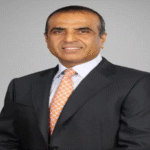International Day of Peace: A Call for Unity and Understanding

Conflicts around the world between the militaries of two countries have always proven to push the global economy to the back foot as the world is interdependent. Henceforth maintaining peace in the world is very important for the betterment of all.
In today’s world, where conflicts and economic inequalities intersect in complex ways, the pursuit of peace is not just a moral imperative but an essential condition for sustainable development. The link between peace and economic growth is symbiotic: peace builds up stable economies, while economic instability fuels social unrest. Amid mounting geopolitical strains, the 1999 Declaration’s emphasis on respect for life, human rights, non-violence, justice, democracy, and cultural diversity underscores their critical role in sustaining and advancing global stability.
According to the World Bank, the number of people living in extreme poverty rose by roughly 100 million to nearly 700 million; a significant share live in conflict regions.
Each year on September 21, the United Nations (UN) observes the International Day of Peace, a tradition established 43 years ago to promote a culture of peace globally. This year’s observance is particularly poignant amidst ongoing wars and geopolitical tensions, coinciding with the UN General Assembly’s Summit of the Future and the upcoming signing of the Pact for the Future.
Shedding light on the importance of global peace Lt. General Vinod G. Khandare, Principal Adviser, Ministry of Defence, Government of India underscored “Peace and harmony is most desireable for humanity. However, there is a distinct gap between desire and reality. Human history is replete with examples of domination by one group over others using leverages of economic power, military power or ideological convictions. Pragmatism dictates that to maintain peace each nation has to maintain a balance of power by being strong. Perfect peace is a desireable dream which everyone must have. To transform the idealistic dream into reality the entire global leadership must be altruistic and spiritually enlightened. History is devoid of any such period but it is always good to remain optimistic and endeavour to achieve it.”
The Origins of the International Day of Peace
The International Day of Peace was founded in 1981 by the UN General Assembly (UNGA) through a resolution that aimed to “commemorate and strengthen the ideals of peace within and among all nations and peoples.” Two decades later, a subsequent resolution transformed this day into a call for non-violence and cease-fires, encouraging an end to hostilities while advocating for dialogue, conflict resolution, and peace education.
Since 2001, September 21 has been officially recognized as the International Day of Peace.
Celebrating Peace Worldwide
Celebrations of the International Day of Peace take on many forms across the globe. In various regions, people participate in moments of silence, peace education initiatives, intercultural dialogues, and activities aimed at fostering understanding and cooperation among diverse cultures.
Highlighting the importance of the role of Global governance Sudarshan Suchi, CEO, Bal Raksha Bharat while exclusively interacting with ObserveNow Media underscored “To reduce conflict and inequality, global governance needs to promote fairer economic policies, ensuring equal access to opportunities. By addressing wealth gaps, supporting inclusive growth, and focusing on sustainable development, we can reduce tensions and build a more peaceful, balanced world. The key to lasting impact lies in co-creation, where nations, communities, and stakeholders work together to design inclusive solutions that reflect diverse perspectives and shared responsibility, ensuring that peace and prosperity are sustainable for all”.
The day traditionally begins at the UN headquarters with the Peace Bell Ceremony, featuring a bell forged in the early 1950s from coins and medals donated by UN member states and children from around the world.
This year’s theme, “Cultivating a Culture of Peace,” emphasizes the need to nurture peace across different communities and generations.
The Urgency of Peace in Today’s World
UN Secretary-General António Guterres highlighted the urgency of this year’s observance during his address at the Peace Bell Ceremony earlier this month. He noted, “From the Middle East to Sudan, Ukraine, and beyond, we see bullets and bombs maim and kill; bodies piled high; populations traumatized; and buildings reduced to rubble. Meanwhile, the foundations of a peaceful world are fracturing.”
Guterres pointed out that geopolitical divisions are deepening, inequalities are rising, and misinformation is exacerbating hatred. New technologies are being misused, and the climate crisis is contributing to instability.
According to the World Economic Forum’s Global Risks Report 2024, misinformation, extreme weather events, societal polarization, and armed conflict rank among the foremost risks confronting the global community.
As we observe the International Day of Peace, it serves as a reminder of our collective responsibility to promote peace and understanding in a world increasingly marked by division and conflict.
















